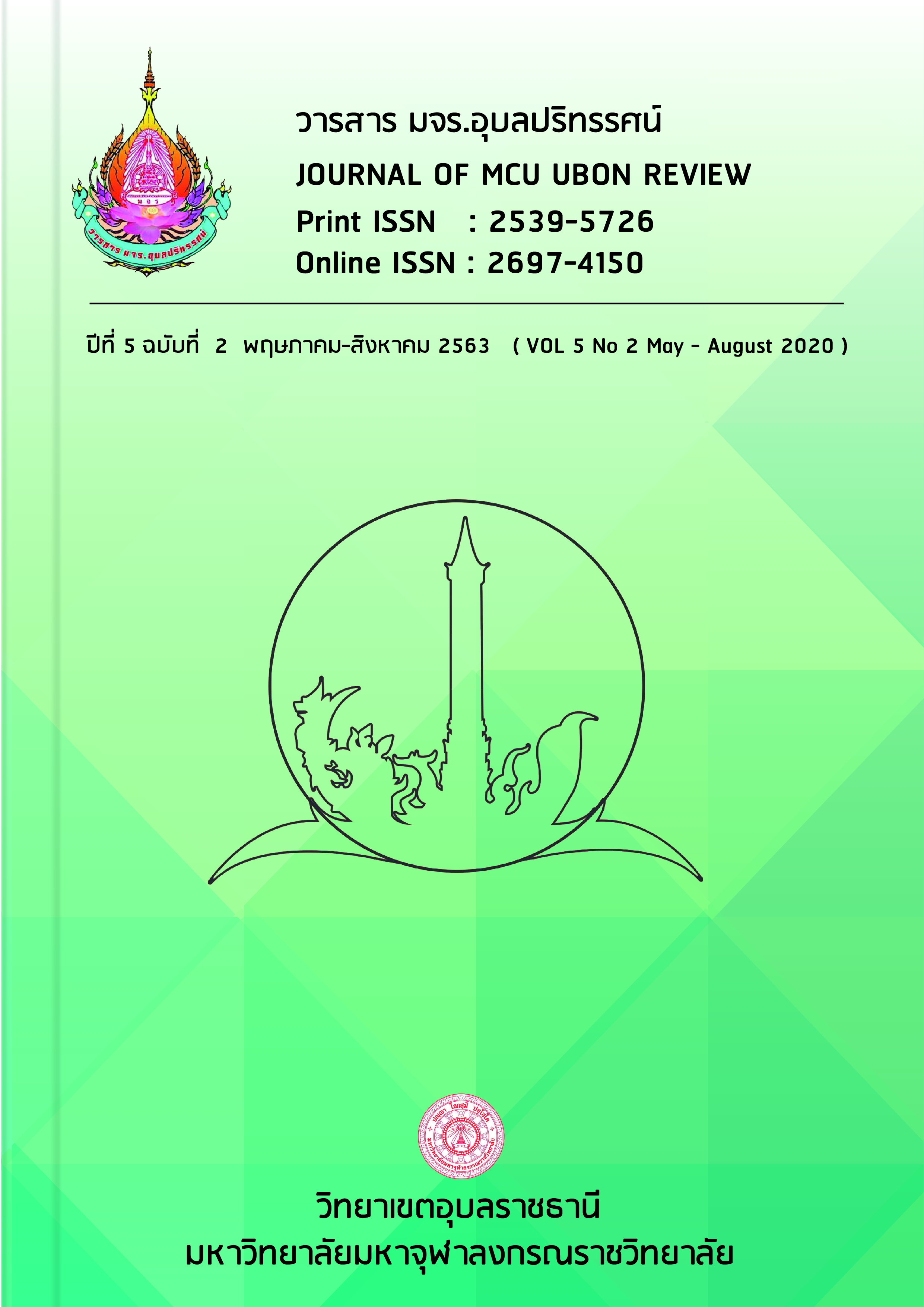Empowerment model of teacher and educational personnel for school academic work development
Main Article Content
Abstract
The objectives of this research were to 1) study the components of empowerment model of teacher and educational personnel for school academic work development 2) develop empowerment model of teacher and educational personnel for school academic work and 3) confirm of empowerment strengthen model of teacher and educational personnel for school academic work. The research methodology was used by Mixed methods were The sample size of this research was totally 413 people who were selected by purposive sampling and using Krejcie and Morgan standard table that consists of 52 administrators and 361 teachers in school under secondary educational service office area 2. The collection data tools namely; 1) content analysis form, 2) structure interview schedules, 3) rating scale questionnaire, and 4) checklists form.
The statistics for data analysis were frequency, percentage, mean, standard deviation, median and interquartile range (IQR).
The research result reveals that;
- Empowerment model of teacher and educational personnel for school academic work development consisted of 2 components were 1) empowerment of teacher and educational personnel component had 5 factors namely (1) reinforcement for workers (2) extension and development of collaborative organization (3) creating workforce environment (4) creating leadership to workers and (5) team building 2) academic development of school component had 6 factors namely (1) school curriculum development (2) instructional arrangement (3) learning process development (4) Media, innovation and educational technology development (5) supervision in school and (6) measurement and evaluation.
- The result of confirmation empowerment model of teacher and educational personnel for school academic work development was evaluated possibility and appropriation for model using trial. It revealed that the model was possible and appropriate model for applying empowerment of teacher and educational personnel in the generally at high level.
Article Details
References
ในสถานศึกษาขั้นพื้นฐานขนาดเล็ก. วิทยานิพนธ์การศึกษาดุษฎีบัณฑิต สาขาวิชาการบริหารและพัฒนาการศึกษา มหาวิทยาลัยมหาสารคาม.
เฉลิมชัย แก้วมณีชัย. (2556). การพัฒนารูปแบบการเสริมสร้างพลังอำนาจครูในโรงเรียนมัธยมศึกษา สังกัดสำนักงานคณะกรรมการการศึกษาขั้นพื้นฐาน. วิทยานิพนธ์
ครุศาสตรดุษฏีบัณฑิต สาขาวิชาภาวะผู้นำทางการบริหารการศึกษา มหาวิทยาลัย
ราชภัฏสกลนคร.
นิตยา จันทะปัสสา. (2555). การพัฒนางานวิชาการด้วยหลักการเสริมสร้างพลังอำนาจการทำงานของครูในโรงเรียนสังกัดสำนักงานคณะกรรมการการศึกษาขั้นพื้นฐาน. วิทยานิพนธ์ปรัชญาดุษฎีบัณฑิต สาขาวิชาการบริหารการศึกษา มหาวิทยาลัยขอนแก่น.
ผ่องศรี แก้วชูเสน. (2555). การพัฒนารูปแบบการประกันคุณภาพภายในสถานศึกษาโดยใช้การประเมินแบบเสริมพลังสำหรับวิทยาลัยเกษตรและเทคโนโลยี. วิทยานิพนธ์ศึกษาศาสตร์ดุษฎีบัณฑิต มหาวิทยาลัยสุขัยธรรมธิราช.
พรฐิตา ฤทธิ์รอด. (2555). รูปแบบการบริหารสถานศึกษาขั้นพื้นฐานแบบเสริมพลังอำนาจ. วิทยานิพนธ์การศึกษาดุษฏีบัณฑิต สาขาวิชาการบริหารการศึกษา มหาวิทยาลัยนเรศวร.
สำนักงานเลขาธิการสภาการศึกษา. (2553). ข้อเสนอการปฏิรูปการศึกษาในทศวรรษที่สอง
(พ.ศ.2552-2561). กรุงเทพฯ: พริกหวานกราฟฟิค จำกัด.
สุชีพ ชั้นสูง. (2557). การพัฒนารูปแบบการประเมินตนเองโดยใช้วิธีเสริมพลังอำนาจเพื่อแสดงความรับผิดชอบในการดำรงวิทยฐานะชํานาญการพิเศษ สำหรับครู สังกัดสำนักงานคณะกรรมการการศึกษาขั้นพื้นฐาน. วิทยานิพนธ์ปรัชญาดุษฎีบัณฑิต สาขาวิชาการประเมินการศึกษา มหาวิทยาลัยสุโขทัยธรรมาธิราช.
Breeding, R.R. (2008). “Empowerment as a function of contextual self-understanding,” Rehabilitation Counseling Bulletin. 51:96-106.
Scott, C. D. and Jaffe, D. T. (1991). Empowerment: Building a committed workplace. California: Kogan Page.
Short and Greer. (1997). School participant empowerment scale: Assessment of level of empowerment within the school environment. Educational and Psychological Measurements, 52, 951-961.


